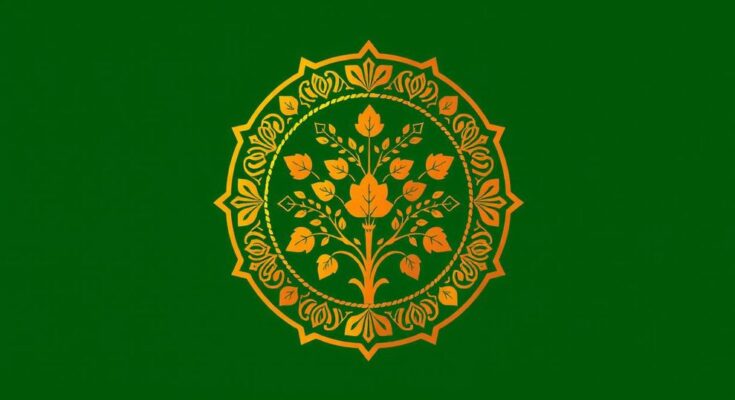Ghana’s gold trading stakeholders have strongly endorsed the establishment of the Ghana Gold Board (GOLDBOD) due to its potential economic impact. A recent forum highlighted the need for fair representation in governance and collaborative efforts to restore degraded lands. GOLDBOD aims to streamline the sector, promote fair pricing, and support community development while addressing smuggling issues in gold trades.
The establishment of the Ghana Gold Board (GOLDBOD) has received overwhelming support from stakeholders in the gold trading sector, including buyers, jewelers, and miners. They anticipate that GOLDBOD will positively impact the economy by enhancing foreign exchange, stabilizing the cedi, and increasing reserves. This initiative aims to streamline the gold trading process significantly.
During a forum organized by the Precious Minerals Mining Company (PMMC) in Tarkwa on March 14, 2025, stakeholders acclaimed GOLDBOD’s potential and encouraged the government to expedite its establishment. They also emphasized the importance of fair representation on the governing board and suggested including traditional leaders and academia.
Godwin Nickleson Amarh, the General Secretary of the Ghana National Association of Small-Scale Miners (GNASSM), assured stakeholders that their concerns regarding land degradation would be addressed in collaboration with GOLDBOD. He also alleviated fears regarding potential unfair gold pricing under the new system, confirming GNASSM’s representation on the Technical Committee.
Jonathan Ababio from the Jewelers Association commended the draft legislation’s proposal to retain a percentage of gold purchases within the country and provide machinery for product enhancement. He remarked on the necessity for innovation in the sector to gain international market access.
Alhaji Dauda, a licensed gold buyer, expressed enthusiasm for the US$279 million allocated as a revolving fund for gold purchases, urging the government to ensure timely and equitable disbursement. He highlighted the importance of migrating to a commercial purchase rate to mitigate liquidity challenges in gold trading operations.
Kwaku Effah Esuahene from the Chamber of Bullion Traders emphasized that GOLDBOD would facilitate the assessment of foreign exchange influx into the nation and called for cooperative efforts to combat gold smuggling. The forum was directed at educating stakeholders about GOLDBOD’s objectives and encouraging support for the initiative.
Samuel Gyamfi, Managing Director of PMMC, addressed attendees, clarifying that GOLDBOD aims to benefit all stakeholders in the gold trading sector. He assured that proceeds from gold sales would contribute to social responsibility projects, including schools and infrastructure, thereby ensuring community benefits.
The Ghanaian government has formed a Technical Committee to draft legislation that supports GOLDBOD’s objectives. Gyamfi also noted the importance of this legislation in addressing gold smuggling which has significant negative implications for the country’s gold trade. Recent data indicated Ghana’s gold exports reached $11.64 billion in 2024, predominantly driven by small-scale miners, even as smuggling activities persisted.
In summary, the establishment of GOLDBOD is viewed favorably by diverse stakeholders within Ghana’s gold trading sector. They foresee significant economic benefits through streamlined operations, fair pricing, and community support initiatives. The call for a balanced representation on the governing board and the commitment to address job security and environmental concerns reflect a holistic approach to gold trading which GOLDBOD aims to embody. Continued stakeholder engagement and legislative support will be crucial in realizing these objectives and combating illegal smuggling.
Original Source: www.ghanaweb.com




